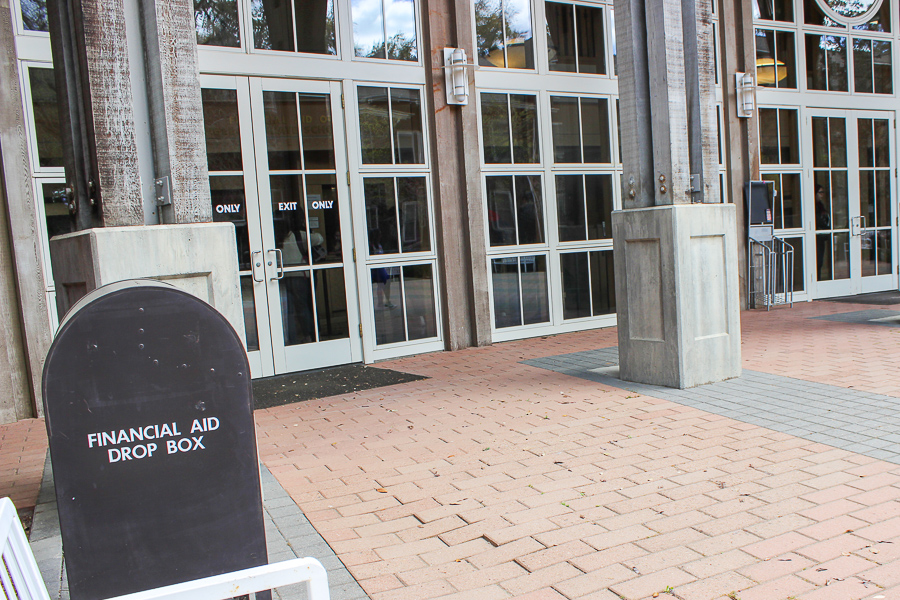
56 percent of students graduate with debt in 2015, compare to national average of 68 percent
UC Davis was included in The Princeton Review list of the top 200 colleges that pay you back, announced on Jan. 31. The unranked list included colleges that deliver academics, affordability, financial aid and great career foundations.
The Princeton Review used 40 data points such as academics, costs, financial aid, debt, graduation rates, career data and salary data. The data came from the 2014-2015 Common Data Set, student surveys, alumni surveys, and 2015-2016 alumni career and salary statistics.
UC Davis was chosen partly on its academic excellence. With UC Davis’ 42 percent acceptance rate, the university displayed score of 90 for its admissions selectivity rating and applicants’ average high school grade point average being 3.99.
UC Davis’ affordability, considering tuition and financial aid availability, was another factor under consideration. From the 2014-2015 data, the tuition for California residents was around $11,220, while for non-residents it averaged at $35,928. Tuition after room and board for those living on campus totaled $32,208 and $56,916, respectively, for in-state and out-of-state tuition.
Trina Wilson, senior associate director at UC Davis Financial Aid, believes that UC Davis provides both sufficient financial aid and manageable loan indebtedness for its students.
“In [2014-2015] the average need-based gift aid (or scholarships and grants) for incoming freshmen was $20,111 and for undergraduates it was $17,591,” Wilson said via email. “The average financial aid package [provided] for incoming freshmen was $23,271 and for undergraduates it was $20,360.”
Wilson noted that UC Davis’ average financial aid packages exclude Federal Direct unsubsidized and PLUS loans, as well as private or alternative loans.
Wilson additionally emphasized UC Davis students’ declining debt and lower average debt.
“According to the Project on Student Debt by the Institute for College Access & Success, the 2014-15 national average student debt at graduation was $30,100 compared with $19,588 at UC Davis,” Wilson said. “Based on their findings, 68 percent of the students across the nation graduated with debt in 2014-15, compared to only 56 percent of UC Davis students.”
Wilson and the financial aid office are proud to show statistics that demonstrate UC Davis’ efforts to reduce student debt.
“Based on preliminary numbers, it appears the percentage of UC Davis students incurring debt declined again in 2015-16,” Wilson said. “Undergraduates have also seen a decline in the average loan amount as well as a lower cumulative loan balance upon graduation. [Reduction of] the amount of self-help undergraduates have to pay and [expansion of] our financial literacy resources [is occurring].”
Jennifer Duong, financial aid peer advisor and a third-year managerial economics and psychology double major, acknowledged many financial aid resources available for students.
“For UC Davis, there are emergency and short-term loans for students who need money ASAP, and there are also different types of forms and appeals that students can potentially submit if they believe they need more aid or are in a certain type of situation,” Duong said. “There’s also some meal programs that help students with food.”
Duong believes there are many different ways that UC Davis “pays you back.”
“Some of my peers have told me that they went to Davis because they received the most financial aid compared to other schools,” Duong said. “I’ve noticed that many students are able to receive financial aid refunds to help them with their personal expenses such as rent or utilities […] [refunds] help a lot of students pursue different opportunities that they might not have been able to pursue without those funds.”
Marcie Holland, director of UC Davis’ Internship and Career Center (ICC), believes going to UC Davis provides a great return on investment.
“UC Davis in particular [does] a fantastic return on investment,” Holland said. “40 percent of UC Davis are Pell [Grant] eligible because of their income. What that means is that UC Davis is a wonderful mechanism for social mobility. Within five or 10 years students from low economic backgrounds are making the same income as their family.”
One of the programs offered through the ICC that Holland emphasized was the Career Discovery Group. This career group collaborates with the College of Agricultural and Environmental Sciences to offer field trips, seminars and mentorship for in-depth career exploration to freshman and transfer students. Spots will open for this program in the spring.
Likewise, Holland said the ICC offers many other opportunities such as maintaining Aggie Job Link and providing internship workshops, career fairs and career advising. The winter career fair will be on March 1 and a startup career fair will be on May 13.
“In general, I think Davis is a great community filled with a lot of driven individuals,” Duong said. “I think that you can really create a lot of meaningful relationships within Davis, and that there are a lot of different networking opportunities for students.”
Written by: Yvonne Leong — campus@theaggie.org




